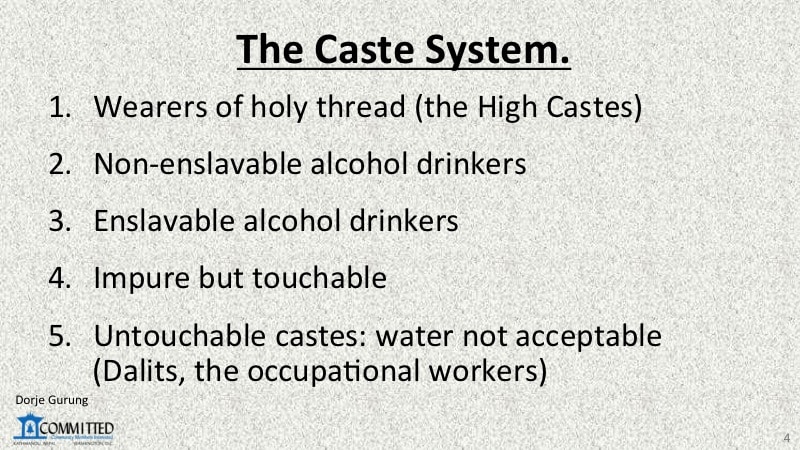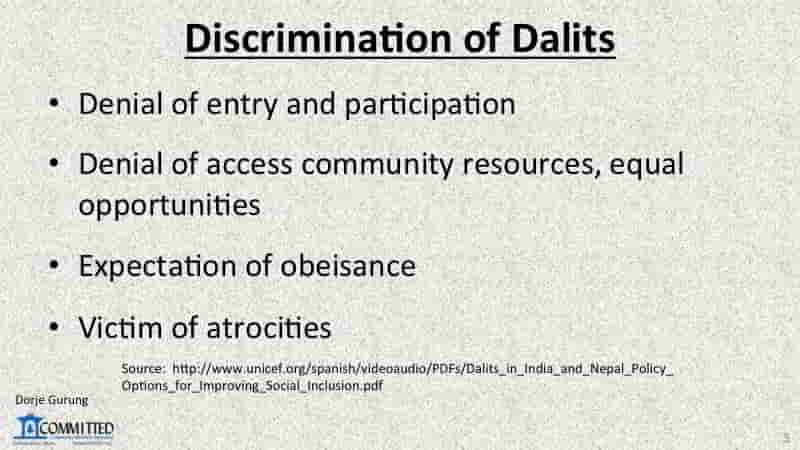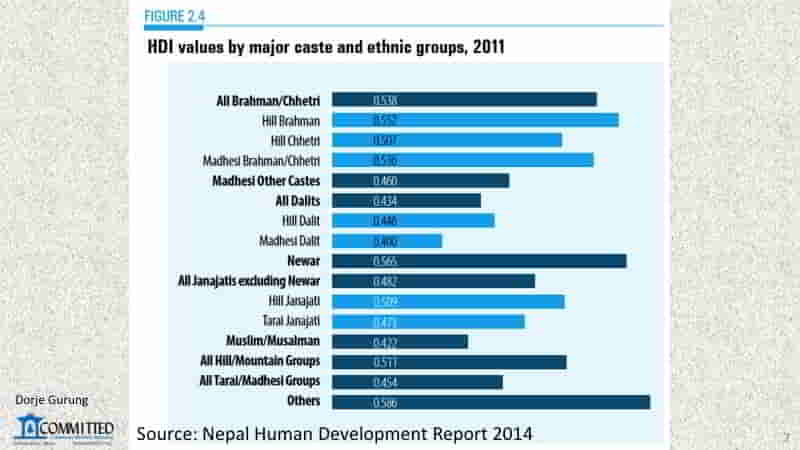SOCIAL STRUCTURE in our country has always been very hierarchical. There has always been the hierarchy of class but it is also vastly stratified owing to the Caste System.
Formalized in 1854 with the promulgation of the Nepal Legal Code, the Muluki Ain, basically the Caste System, is based entirely on Hindu Orthodoxy and classifies people into five hierarchical castes.
- At the top are the “wearers of holy thread”, the high castes.
- Next are the “Non-enslavable alcohol drinkers,”
- Then come the “Enslavable alcohol drinkers,” the Tamangs and people like myself from Mustang district, called Bhote, fall in this caste.
- The fourth are the “Impure but touchable” ones such as the Tharus from the Southern Plains.
- Then at the bottom are the “Untouchable castes” from whom the high castes cannot accept water and whose touch requires sprinkling of holy water. These are the Dalits, the occupational workers, such as the tailors, cobblers, blacksmiths etc. and therefore unclean.
The first and the most obvious way untouchability of Dalits is enforced is through segregation of their residential area.
All Dalits in a village are made to live on streets reserved just for them, away from everyone else. The following are some of the numerous other ways their freedom and rights are curtailed.
- They are denied entry in houses, restaurants, temples and participation in, or entry into, social and public activities and functions etc.
- They are denied access to community resources, denied equal opportunities to enter labor market etc.
- Higher castes expect obeisance from them.
- They are made victims of atrocities more than others, such as rape of Dalit women.
These practices are most severe in Terai. The following video, made by my friend Subina Shrestha, a journalist for Al Jazeera, is about the victimization of one such Dalit group in the area.
Is it any wonder then that, as a people, they have some of the lowest Human Development Indices.



